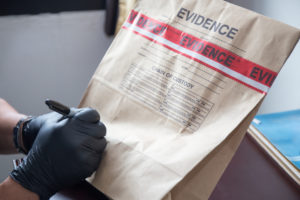
If you are injured in an accident, your medical bills and other expenses can add up quickly. You might be able to recover compensation from the party who caused your accident. However, you will have to prove they were at fault through a personal injury claim.
The amount of proof required to win a case can vary between different case types. Civil cases have a lower burden of proof than criminal cases. If you have questions about the burden of proof in your case, you should speak to experienced personal injury attorneys in Clearwater.
Table of Contents
What is the Burden of Proof?
The burden of proof is the level of proof that you must show to win your case. Picture visually the burden of proof as a scale from 0 to 100 that can be measured from no proof to 100% certainty. No cases require 100% proof.
A judge or jury will decide whether you met your burden of proof. Burdens of proof are different for civil, criminal, and administrative cases.
The Different Burdens of Proof
The type of case determines the burden of proof. There are three main burdens of proof in the law: preponderance of evidence, clear and convincing evidence, and proof beyond a reasonable doubt.
- Preponderance of evidence: This is the lowest of the three burdens listed. This burden of proof requires that your version of events is more likely than not the truth. This equates to 51% or more on the burden of proof scale discussed above. Personal injury cases and other civil claims use the preponderance of evidence standard.
- Clear and convincing evidence: This is the next highest burden of proof. The burden to prove clear and convincing evidence is higher than the preponderance standard. It requires a person to prove their claim is highly and substantially more likely true than not true. This type of burden of proof can be found in family law cases, administrative hearings, and other areas of law.
- Proof beyond a reasonable doubt: This is the highest burden of proof in the court system. In criminal cases, prosecutors must prove a defendant is guilty beyond a reasonable doubt to convict them of a charge.
If you are curious about the burden of proof in your case, reach out to an experienced criminal defense attorney who can assess your situation.
The Burden of Proof as a Plaintiff
The plaintiff is the person who initiates a lawsuit. The defendant defends themselves against the plaintiff’s claims.
In a personal injury case, the plaintiff carries the burden to prove that the defendant is responsible for their injuries. Personal injury cases are typically based on negligence. It is common for a plaintiff to present various forms of evidence to prove their case, including witness testimony, documents, and videos.
The plaintiff must prove their case by a preponderance of evidence for each element of negligence: duty, breach, causation, and damages.
In a criminal case, the prosecution has to prove their case beyond a reasonable doubt.
The Burden of Proof as a Defendant
When someone is a defendant, they don’t have to prove anything in court. The burden to prove a case is always on the plaintiff. A defendant’s job is to prevent the plaintiff from meeting their burden of proof.
During a trial, the defense will have the ability to question any witnesses that testify, but don’t legally have to. A defendant will also have the opportunity to present a defense, including defense witnesses and other evidence in favor of the defense. Again, they don’t have to.
The defendant may have the burden of proof for any affirmative defenses they assert. For example, if they claim that you failed to mitigate your damages after an injury, the burden of proof shifts to them to prove it. The burden of proof is still a preponderance of the evidence.
Contact a Clearwater Personal Injury Lawyer for Help
If you were injured in an accident, you may be entitled to damages through a personal injury case. You should contact an attorney to understand whether you can meet the burden of proof for your case. An attorney will conduct an investigation into your accident to gather evidence and identify at-fault parties, all in an effort to pursue maximum compensation on your behalf. Don’t hesitate to contact our Cleawater law office today at (727) 796-8282 for a free case consultation.